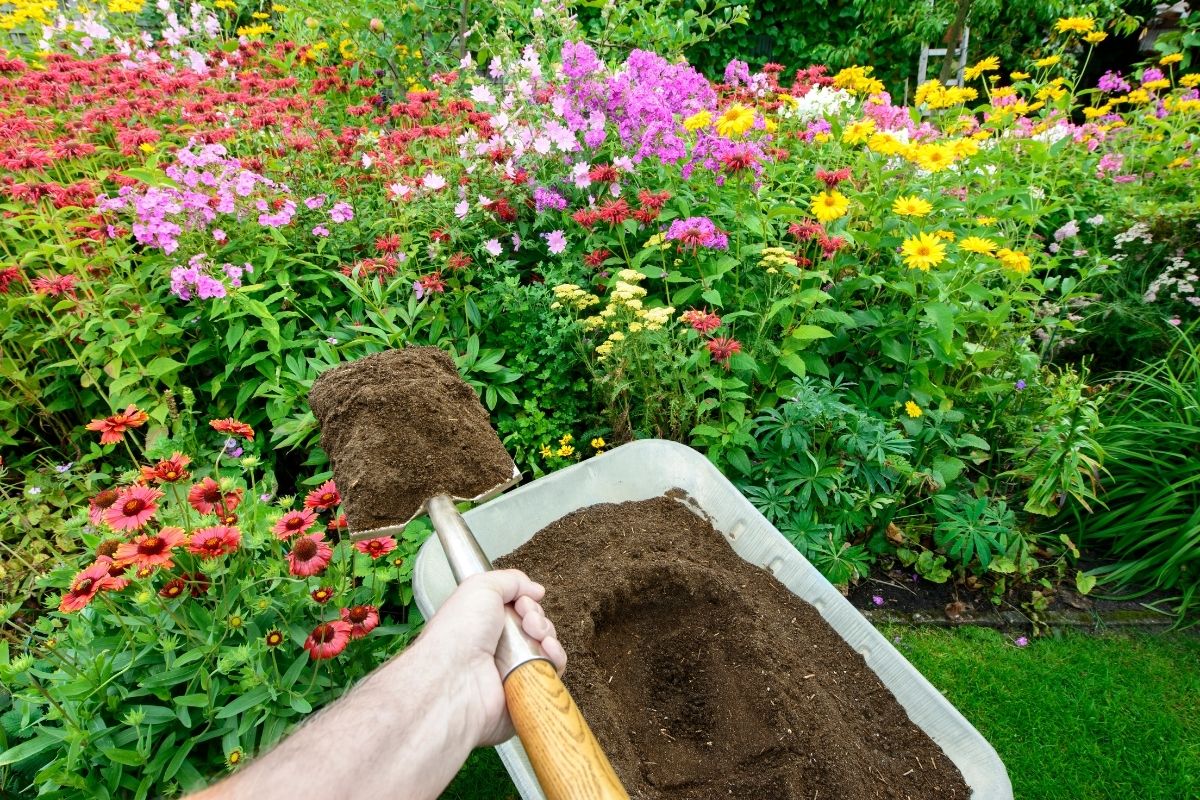Composting, like most garden activities, is something you have to experiment with to get a feel for, and that means there may be some trial and error as you go.
Sometimes the process won’t be as easy as we expect, but when we can figure out what’s wrong, we can correct it!
If your compost seems to be breaking down more slowly than expected, one or more maintenance aspects might need to be adjusted, and adding an accelerator can be helpful to get things moving.
reasons why your compost is slow
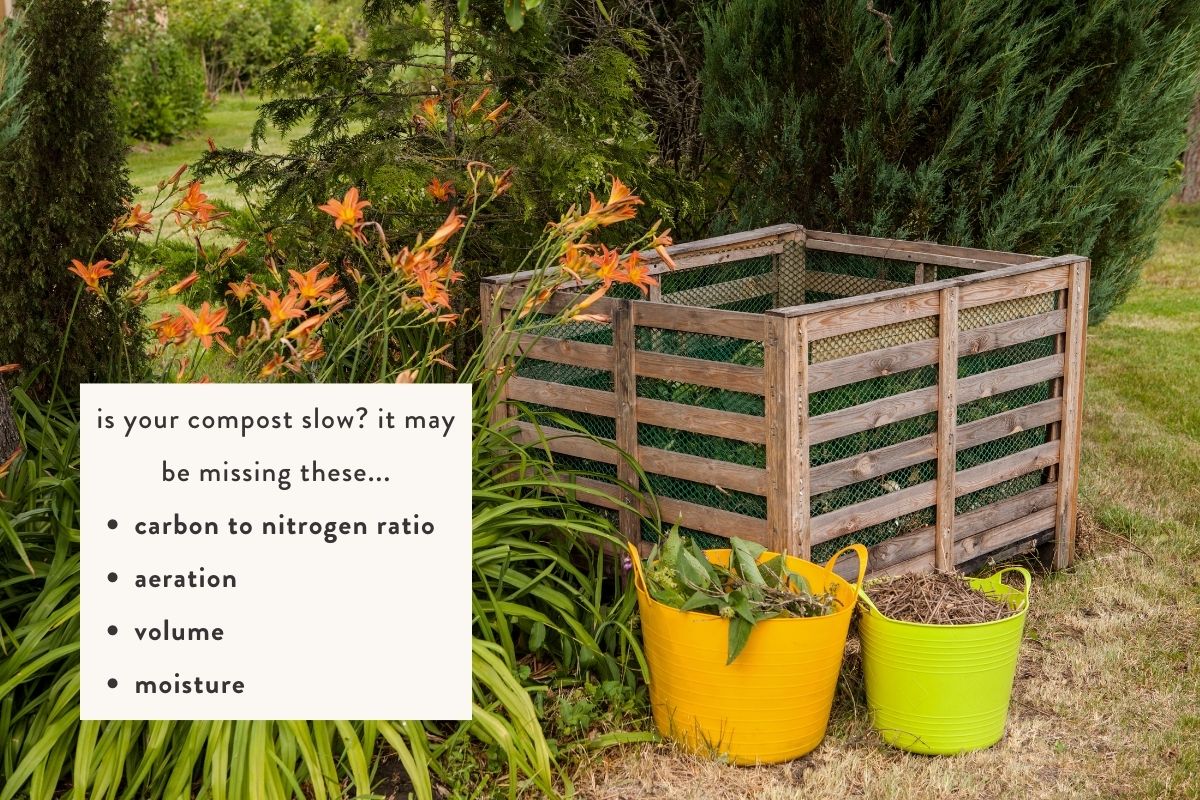
Composting is a little more of an engaging process than most people think before they actually make their own. When you make hot compost, the first couple of weeks are the period of fastest turnover, when good bacteria are breaking down nitrogen-rich materials (like food scraps and green yard waste). The following few weeks are slower, when fungus is breaking down the tougher materials that made it through the bacterial breakdown (carbon-rich materials like dead leaf matter and fruit stems). The materials need to be mixed regularly, at least once a week, for the breakdown of compost to be even and thorough.
If only some of your compost mixture seems to be breaking down despite you having added a compost starter at the beginning of the process, one or more of the steps to maintaining good compost breakdown may be unbalanced or missing:
- Carbon to nitrogen ratio
- Aeration
- Volume
- Moisture
Without all of these in balance, the environment becomes inhospitable for the bacteria and they may begin to die off, slowing down or halting the decomposition process. Regular attention to the compost heap conditions keeps the bacteria happy and active!
c:n ratio
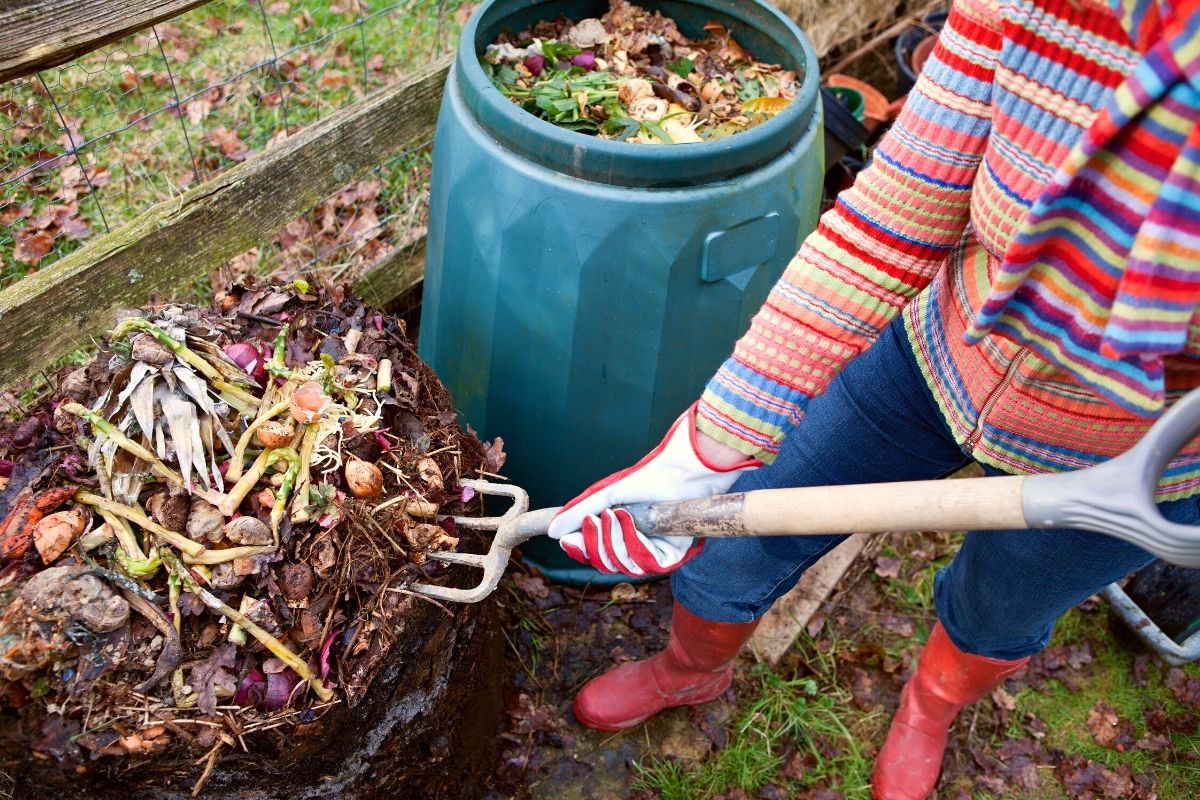
The carbon to nitrogen ratio, or browns to greens, is an important balance to maintain. Green materials, including green leaves, vegetable and fruit scraps, and weeds from the garden, are full of nitrogen and water. When they’re broken down, the liquid gets released, which is why it’s important to have brown materials like dead leaves, cardboard, and wood shavings to soak up the moisture and give the compost a firm structure. Grass clippings are an especially good addition to compost since they’re rich in both N and C.
aeration
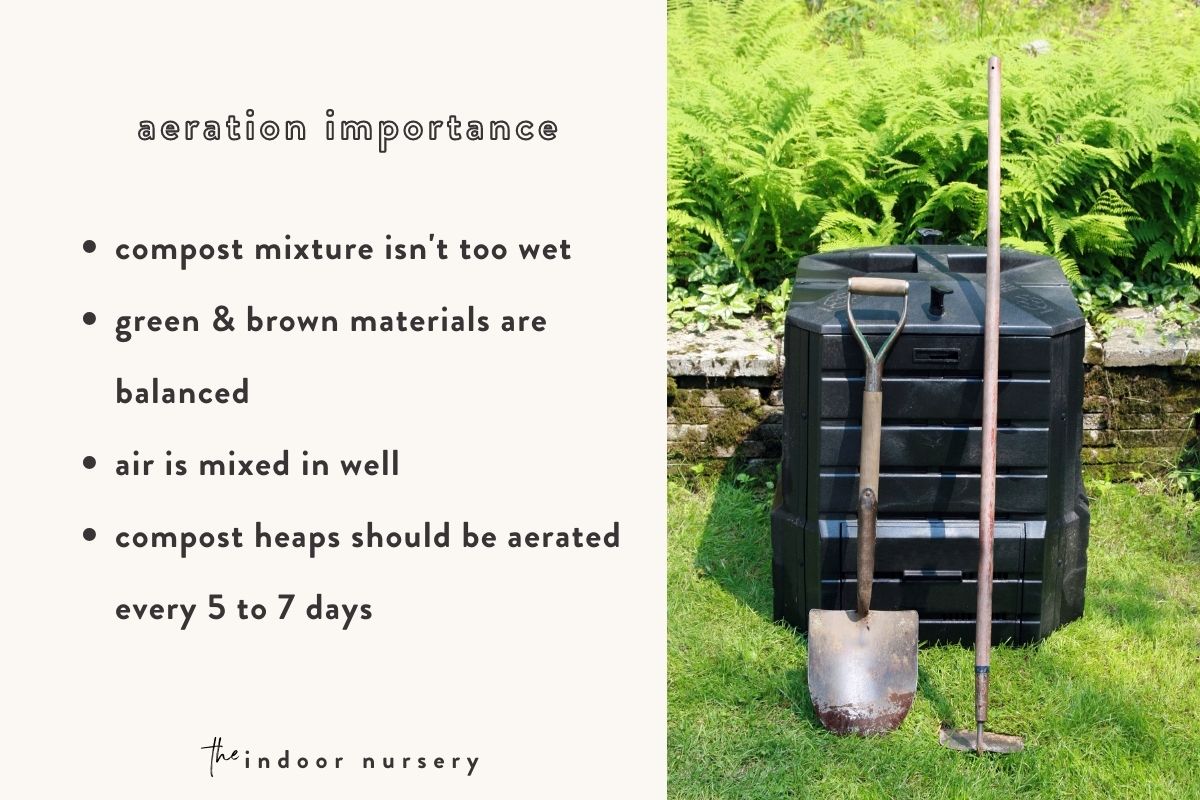
Mixing air into the compost is essential to keeping the process moving along smoothly. The bacteria that decompose the organic materials into the usable basis of soil (humus) need air to live. Making sure that the compost mixture isn’t too wet, that green material is well balanced with brown materials, and that air is mixed in well to the compost helps the bacteria eat through the material as quickly as they’d like. This can be done using a tumbler composting bin, a compost corkscrew tool, or a pitchfork.
Mixing the materials is important for a homogenous humus at the end of the process. When aerating compost, if you don’t have a tumbler bin, be sure that the inner materials are pulled outward and put on top of the outer materials, since the majority of the decomposition happens at the core of the heap. Compost heaps should be aerated every five to seven days. Be sure not to turn it over too frequently or it will disturb the microbes and fungus before they’re able to make much of an impact, slowing down your composting process.
volume
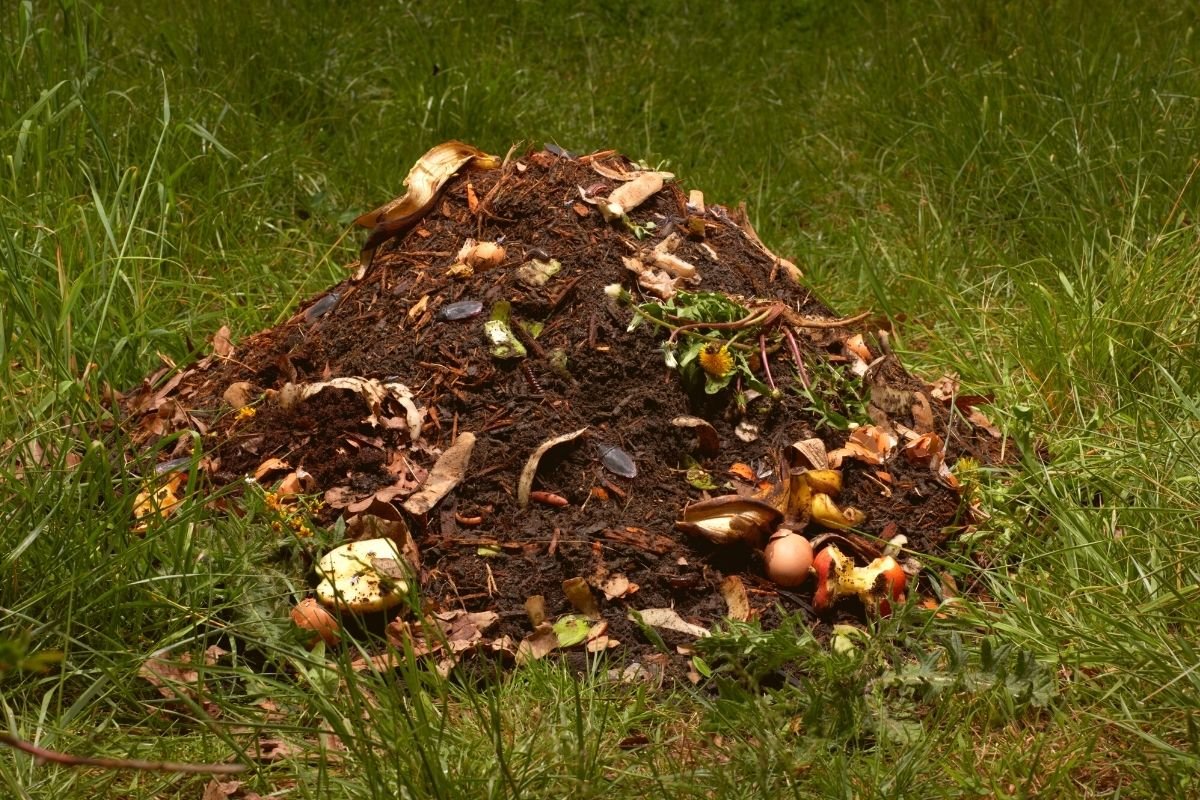
The volume of your heap can make a difference in how quickly or slowly the composting process moves along. The bigger the heap, the more bacteria are able to survive on the plentiful material. Too little material can’t host as many bacteria since there isn’t enough to feed on. The rule of thumb for the good minimum size of a compost heap while you’re adding materials is 3x3x3 feet. The bacteria that do the composting are most concentrated at the center of the heap, where it stays warm and moist.
moisture

Adding some water to your compost is actually feeding the bacteria: like many other living things, they need both oxygen and water (in addition to food) to survive. The compost should regularly be damp like a moist sponge. Not dripping, but not dry either. The water that gets soaked into the materials makes it easier to break down and results in a smooth humus with a slightly muddy consistency.
what is a compost accelerator?
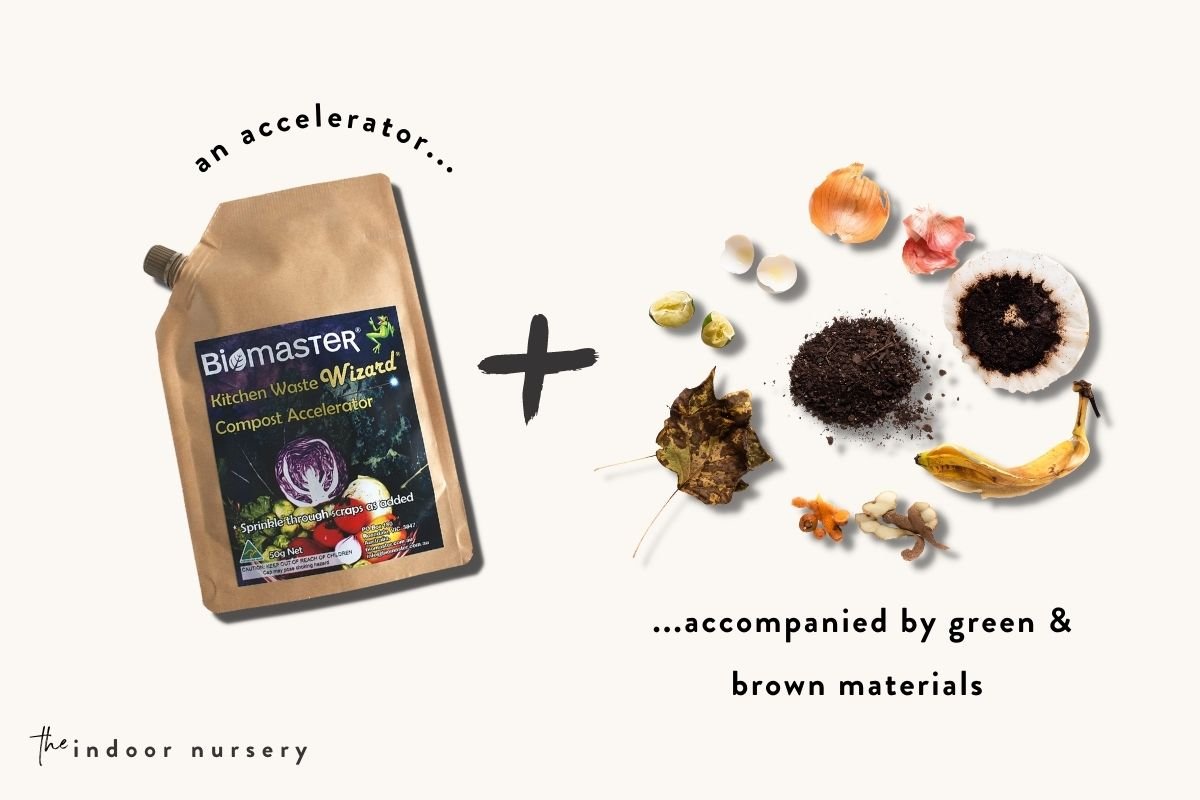
A compost accelerator is full of dormant bacteria and fungal spores that can be added to a compost heap to fuel the decomposition process when it doesn’t seem to be performing the best, usually due to one or more imbalances in its makeup or maintenance. If compost gets too wet, too dry, or it has too much green material over brown, or vice versa, then the good bacteria will begin to die off. An accelerator is added midway through the process and needs to be accompanied by a rebalancing of the compost so the new bacteria and fungus will be able to thrive and get the process going.
compost accelerator vs. compost activator vs. compost starter
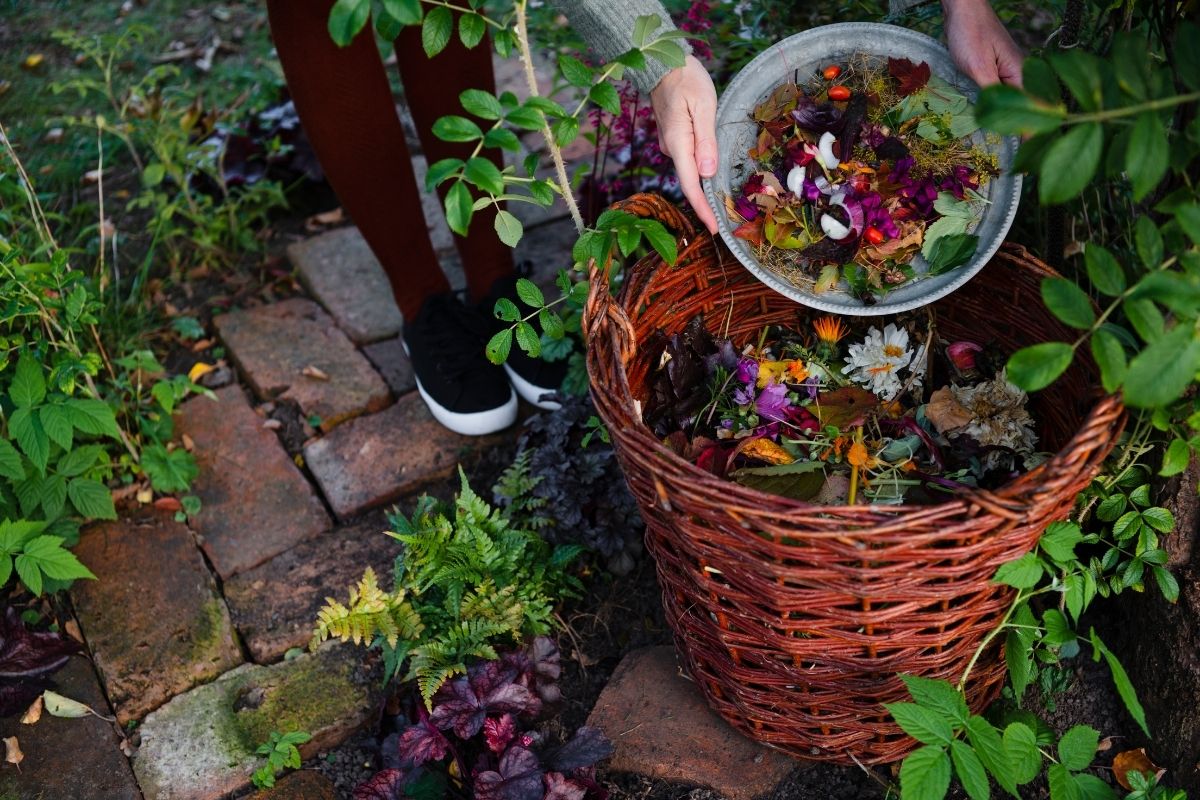
Compost accelerators, activators, and starters are different names for the same basic thing: good bacteria and fungus added to a compost heap. This might be in the form of soil from the ground or garden soil, a sample of finished compost, or isolated bacteria from a food or retail product.
The difference in the terms, however, is really about when you add them. Compost activators or starters are added at the beginning of the process to get it going, and accelerators are added when a heap doesn’t seem to be progressing as quickly as it should.
From start to finish, the compost should be turned over regularly (at least once a week) to blend the materials and oxygenate the mixture to ensure the best conditions for decomposition by the bacteria.
how to make a compost accelerator diy
Compost starters can actually be made easily from food products you might have already at home.
A formula made with beer, soda, and ammonia can be added to your compost after adjusting the heap as necessary to boost the process. When you soak rice in water, you can capture the kinds of bacteria that you need to compost after just a little while.
beer, ammonia, and soda
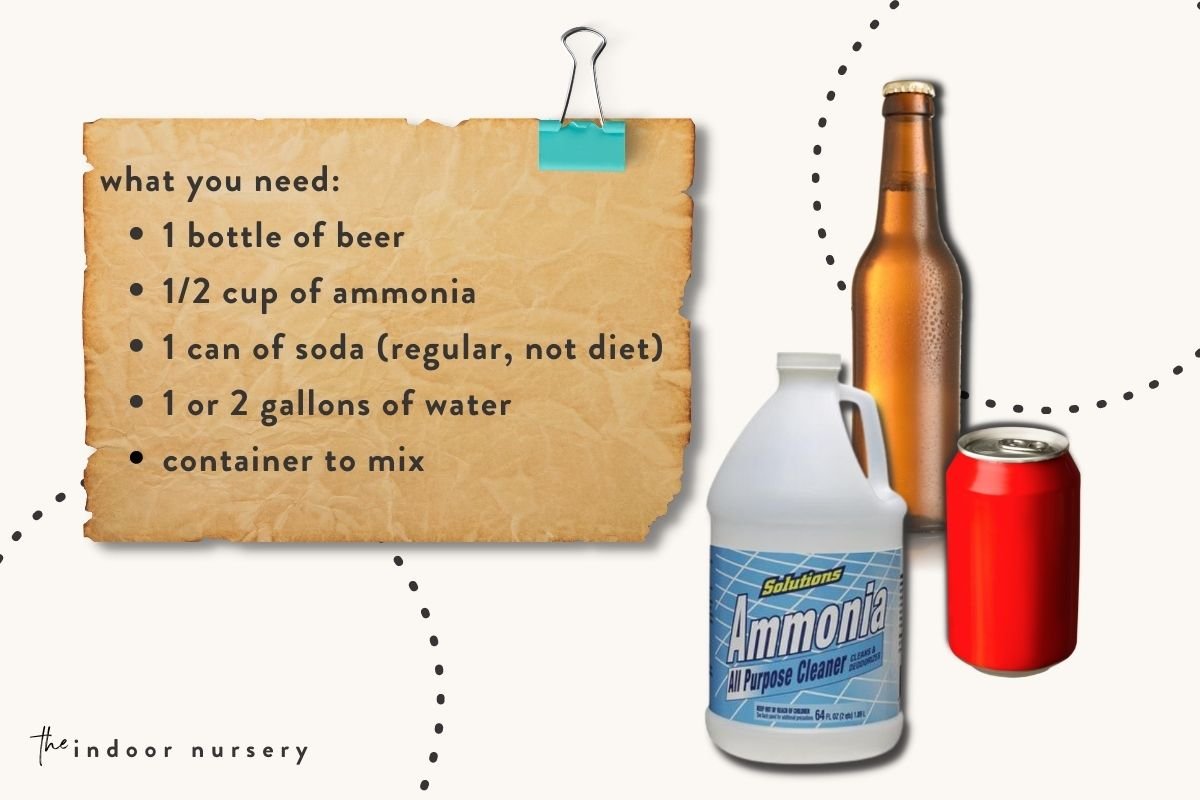
You can mix your own compost accelerator with beer, ammonia, and soda. The beer contains yeast that initiates fungal decomposition, while the sugar from the soda is meant to feed the bacteria present in the compost pile and provide easy energy for them to consume and reproduce. The ammonia provides a source of nitrogen that will, like the soda, add an easy and immediately available energy source for the bacteria’s population to increase.
what you’ll need:
- one bottle of beer
- a half cup of ammonia
- one can of soda (regular, not diet)
- one or two gallons of water
- container to mix
step-by-step instructions:
- Mix the soda, ammonia, and beer into a gallon of water
- Pour the mixture into the fresh compost heap, and turn the heap over to aerate it
rice
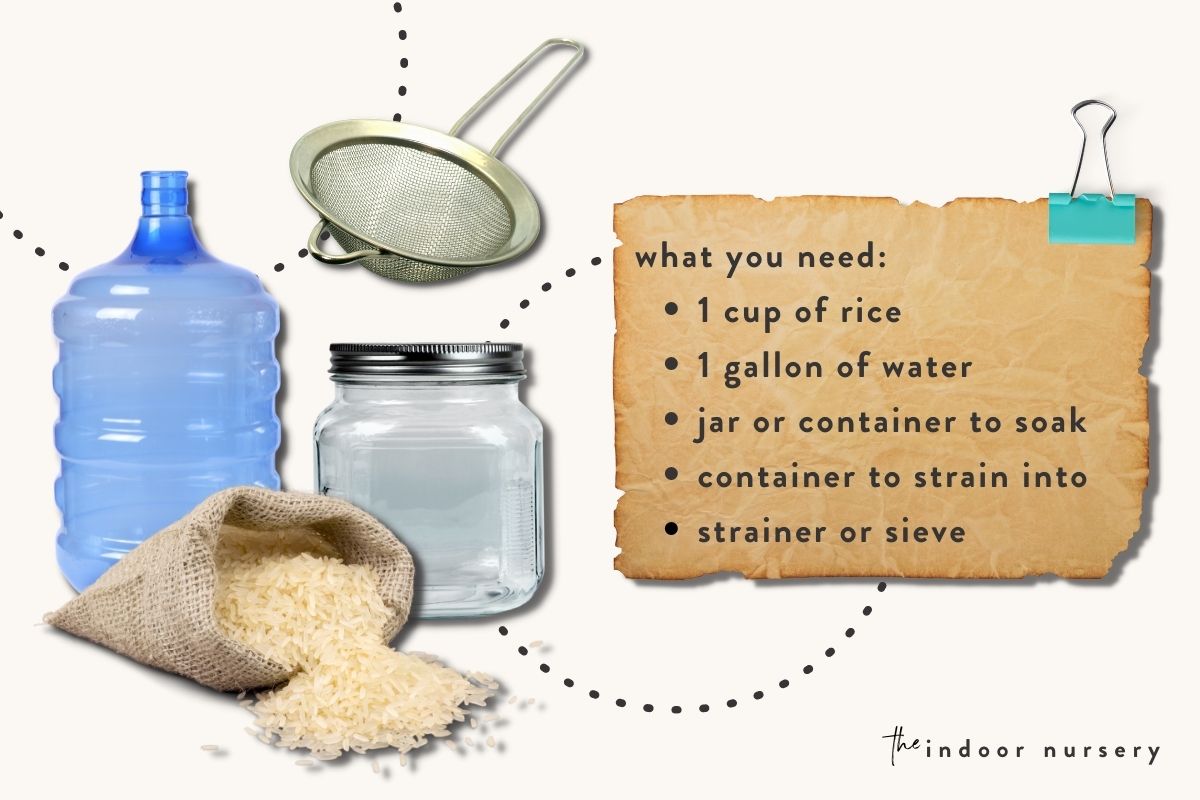
Another home option for a compost accelerator is a rice-based solution. If you soak a half cup of rice in a gallon of water, the good bacteria that is on the rice will be soaked into the water, and, when added to a compost pile, will spread and get to work breaking things down. The bacteria is totally normal and is killed off when we cook the rice, and it’s part of the natural decomposition process. If stored rice gets moist (but not hot enough to be cooked), the bacteria will start to break it down.
what you’ll need:
- Rice 1 cup
- Water 1 gallon
- container to soak
- container to strain into
- strainer or sieve
step-by-step instructions:
- Soak the rice in water for 30 min,
- Drain the water from the rice with a strainer or sieve
- Pour the rice water into the compost.
best store bought compost accelerator options
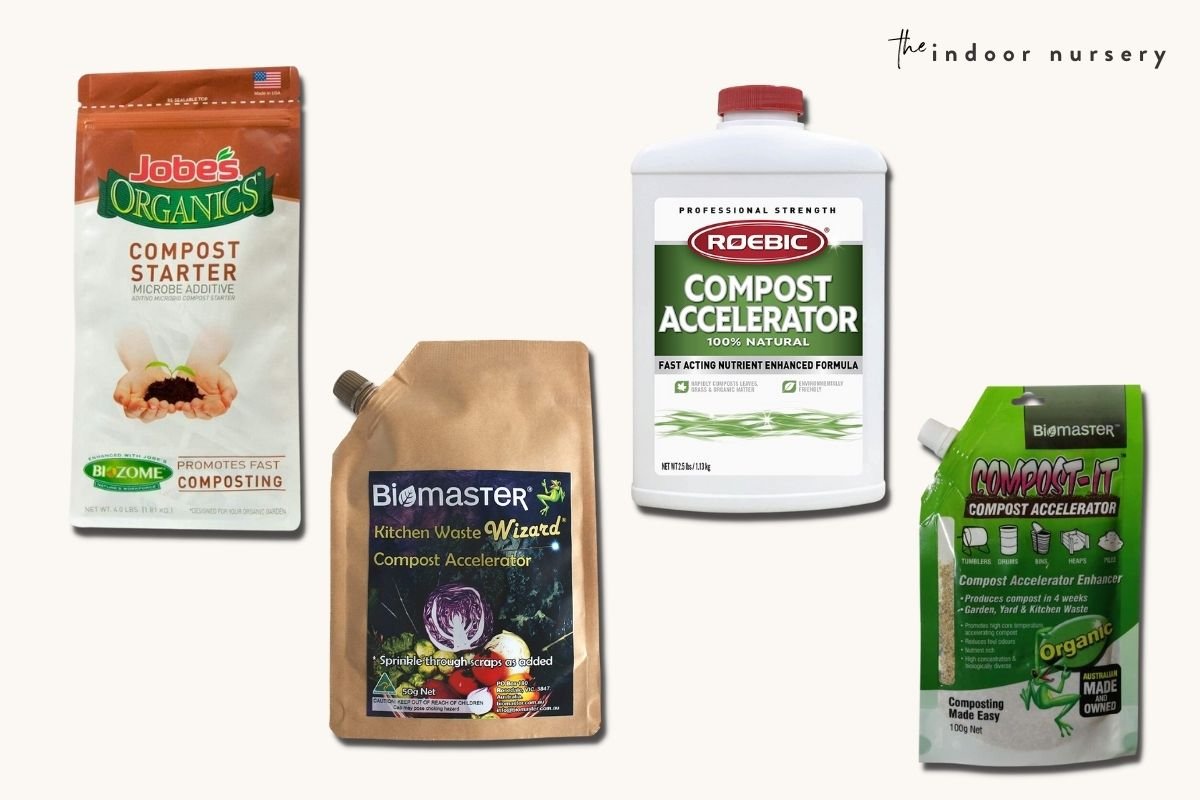
Compost-it
Compost-it is one of our top choices for compost starter because it’s made with a range of natural ingredients and is chemical free. It’s also safe to use on all types of compost: worm, hot, and cool.
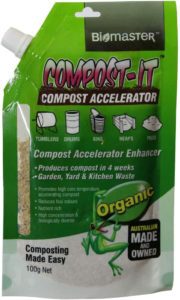
Jobe’s
Jobe’s Organics Compost Stater is a fertilizer that contains organic material and the microbes necessary to break it down quickly. As a compost accelerator, it can be added to get the good bacteria you need back into the heap to restart or speed up the decomposition process.
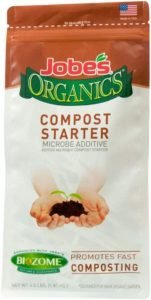
Roebic
Roebic is a professional-strength bacterial compost accelerator that increases biological activity for a hot or cool compost. Since it’s a potent formula, be sure you follow the directions carefully to use the amount that’s right for the size of your compost heap!
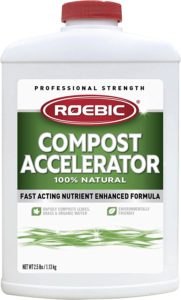
Biomaster
The Kitchen Waste Wizard Compost Accelerator is another natural and nutrient-rich compost accelerator that is safe to use with worm compost as well as in heaps and bins. The concentrated formula means a little bit can go a long way (again, this based on the size of your heap!)
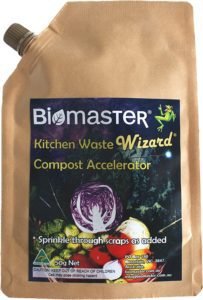
common questions
Some of the most common questions about accelerators are around how to make the compost break down faster, how often an accelerator is needed, and if it’s needed at all. We’ll go over these below!
do you need a compost accelerator?
Compost accelerator is always optional since the bacteria necessary to decompose a compost heap is present on the materials you add to it, but in much smaller quantities than if you add a concentrated product or compost sample full of the good bacteria that you want. An accelerator might be more urgent if your compost heap took a turn for the worse and you need to repair it, in which case, rebalancing the mixture and adding new bacteria should get things moving again, and quickly.
what will make compost break down faster?
While the basics of a compost pile should be kept up to ensure a smooth and successful decomposition process, including maintaining its moisture and a good balance of green to brown materials, actively mixing the compost is the biggest intervention you can make aside from adding an accelerator. A well-aerated compost heap will provide the good oxygen content for bacteria to reproduce and break down the compost materials, and the more frequently you mix it, the faster it will break down. Be sure to do it at least once a week, and no more than once every 5 days.
how often should you use a compost accelerator?
A compost accelerator will only need to be used once as an intervention for a slow or disrupted decomposition to jumpstart the process. If you recognize the need for an accelerator, you should also identify why it was needed, so you can avoid the mistake when you revive your batch and turn out the best batch of compost that you (and the bacteria) can. As long as there’s enough air, water, and green and brown materials, the bacteria will reproduce quickly on their own.
more about composting
- 10 Best Worm Composter Bins For Easy Homemade Compost
- Compost Starter 101: When You Need It And How To Make It
- How to make a DIY indoor worm composting bin in 4 steps
- What to do with extra scoby (hint: it’s good for the soil)
- Vermicomposting for beginners: how to compost indoors for happy plants
- How to use worm castings for happy plants
- How to make worm casting tea in 4 easy steps
- Here’s how to harvest worm castings
- how to use compost accelerator for faster composting
- how long does compost take to turn into nutritious soil? it depends

